Below is a complete list of AAMCNews stories from 2023.
- Medical education
- Patient care
- Climate change and health
- Public health
- Health equity
- Physician workforce
- Physician wellness
- Medical research
- Freedom of speech
- Multimedia series: Why I Stay in Medicine
- Viewpoints
- AAMC Publications/Reports/Initiatives
- Q&As
- Other
- Learn Serve Lead
Medical education

How can medical schools boost racial diversity in the wake of the recent Supreme Court ruling?
The court’s rejection of considering race in college admissions leaves academic leaders worried, but hopeful about other diversity strategies.
Will chatbots help or hamper medical education? Here is what humans (and chatbots) say
New artificial intelligence tools can write application essays, do homework, take tests, and summarize research. Medical schools grapple with how to integrate chatbots.
As more medical schools withdraw from the U.S. News rankings, how should prospective students decide where to apply?
Admissions officers and deans offer insider tips on what individual students should consider – and where to find that information.
Medical students advocate for parental leave policies
Piecemeal approaches create confusion and inequity for student parents, researchers and student advocates say.
Combined bachelor’s and MD programs offer a direct path from high school to medical school
For high schoolers certain they want to become physicians, institutions offer a range of approaches to early medical school acceptance.
Older medical students and The Match®
A former Navy fighter pilot. A chef. A kindergarten teacher. For some students, medicine is a second – and sometimes even a third – career. Here are the stories of eight students who took a nontraditional path to medical school.
What it’s like to not match into a residency program
Sophia Matos, MD, didn’t match the first time. The next year, she matched into medicine’s most competitive specialty — otolaryngology. Here’s how she turned her application around.
From community college to medical school
Students attending community colleges face barriers to becoming doctors. Medical schools hope new programs will help.
Patient care
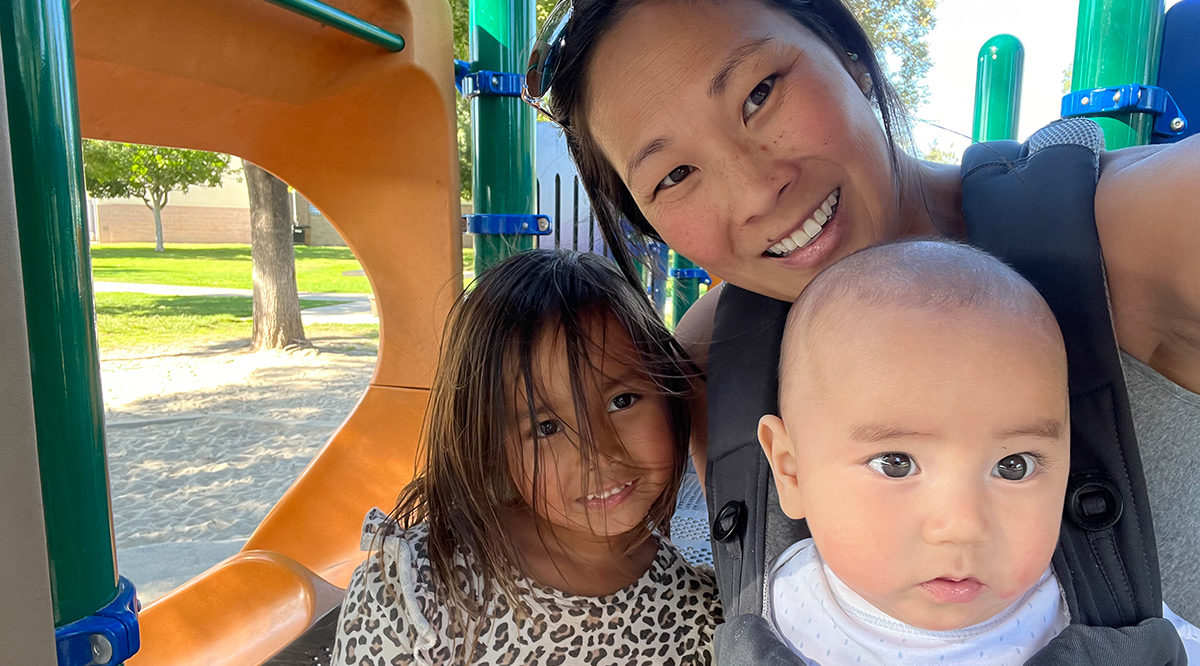
The toll of maternal mental illness in America
In the United States, 1 in 5 women suffer from a mental health disorder in the months before or after giving birth — and the vast majority of them never get care. What’s going on?
What doctors should know about emergency abortions in states with bans
Physicians seek clarification on exceptions to abortion bans where fear of violating new laws has had a chilling effect on emergency care.
How AI is helping doctors communicate with patients
Hospitals are using chatbots to monitor patient health at home and to reply to patient messages. Do the benefits outweigh the risks?
Helping heal Ukraine’s youngest victims
A team of U.S. doctors is helping bombed and burned Ukrainian children in numerous creative ways. Their experiences have been heartbreaking — and uplifting.
The tiniest patients: Operating inside the womb
Maternal-fetal surgeons can already remove deadly tumors, unblock clogged aortas, and treat spinal abnormalities in utero. What’s coming next may be even more dramatic.
Grave errors: Spooky cures and creepy medical missteps from the past
Smoke enemas. Bloody beverages. Milk-based blood transfusions. Humans have long gone to great lengths to preserve their health. We explore six deeply odd, and fortunately abandoned, treatments from the pages of history.
When home is not the best place to die
Many terminally ill patients go home for their final days, but for others, home hospice care doesn’t work. How can health systems provide home-like care at the end of lives?
Physicians learn to partner with Dr. Google
As patients increasingly diagnose their ailments online, doctors see both opportunities to improve care and challenges from those who resist their medical advice.
Out of prison, but struggling to stay healthy
People released from incarceration suffer massive health problems — from diabetes to substance use disorders — and are 13 times more likely to die soon after release. To address these issues, hospitals are employing formerly incarcerated people to help.
The doctor — and the financial coach – will see you now
Recognizing that poverty can drive poor health and even shorten life expectancy, hospitals are offering a range of financial services, from tax preparation to budgeting.
Climate change and health

Coping with extreme heat
Already, heat waves send tens of thousands of people to the emergency department each year. Here’s what heat does to the human body — and why EDs are experimenting with novel ways of cooling heat stroke patients fast.
Hospitals put climate change on the menu
U.S. hospitals feed millions of patients, staff, and visitors annually, with no small environmental impact. All along the food chain, from trucking to trashing, hospitals are stepping up to better protect the planet.
Rural Americans find little escape from climate change
Farm work, geography, and health care gaps leave those who live in rural areas vulnerable to extreme weather. But research on the health impacts and effective prevention is thin.
In coastal communities, the health risks of climate change accelerate
Contaminated water, polluted lakes, and growing mold pose lasting threats to populations that lack resources to overcome the damage and get access to care. Universities and hospitals are exploring solutions.
As climate change fuels more extreme weather, clinics for the underinsured are at the frontlines of the health care response
Harvard researchers have collaborated to create evidence-based resources to help frontline clinics prepare for extreme weather.
Public health
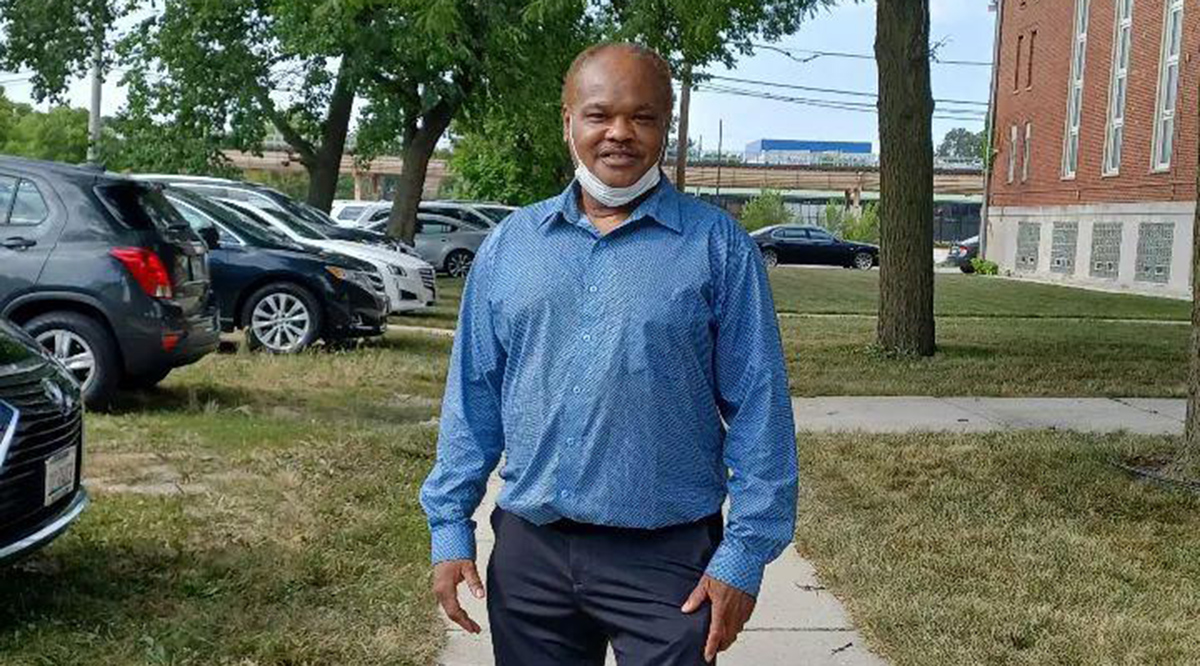
To improve health, hospitals partner to provide housing
People without stable housing often suffer from poor health and are frequent users of the emergency department, prompting more hospitals to invest in affordable housing.
Can hospitals help to reduce violence?
Hospital-based violence intervention programs steer victims to safer, productive lives. Research shows challenges to reducing assaults on a broad scale.
The new COVID boosters: What doctors and patients need to know
The shots offer more protection as new variants emerge. Experts explain why people should get them, how they differ from earlier vaccines, and factors patients should consider.
The end of the COVID-19 public health emergency could further strain emergency departments
Millions could lose Medicaid coverage and turn to emergency departments for care. States are working to avoid disruptions.
Global health threats require collaboration, innovation
New and emerging health threats, as well as the increased politicization of public health, will require global health leaders to head a coordinated response that puts equity and scientific evidence at its center.
Health equity
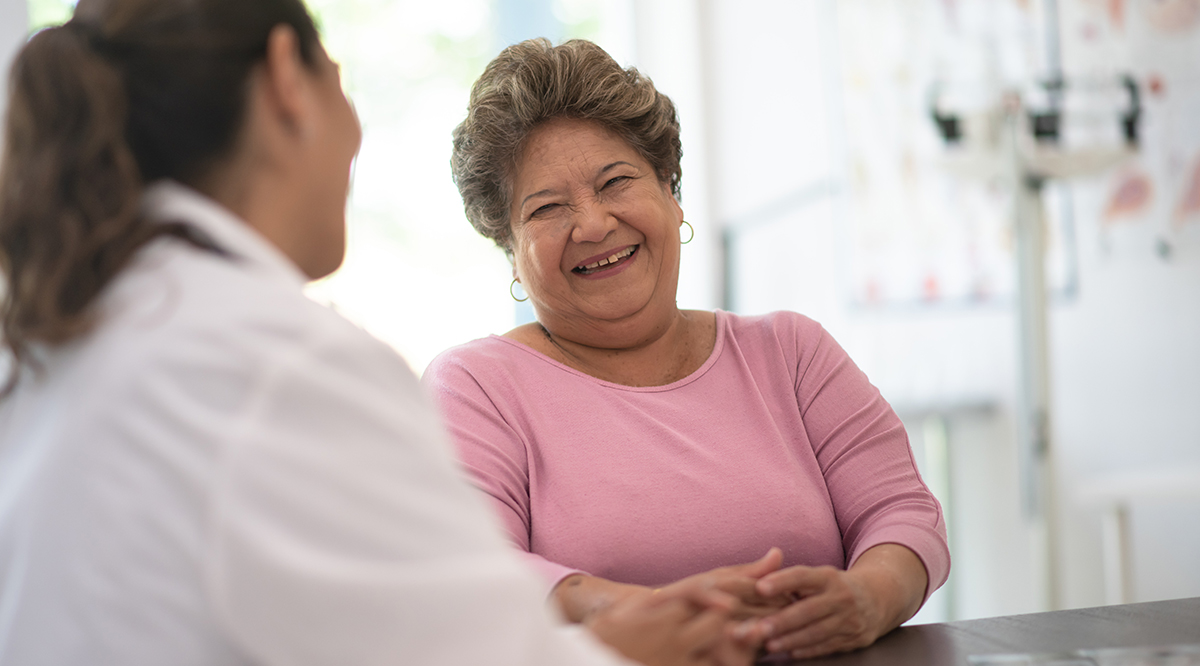
The United States needs more Spanish-speaking physicians
There are more than 40 million Spanish speakers in the country. Advocates and researchers say training more bilingual physicians could improve equitable care in Latino communities.
Do Black patients fare better with Black doctors?
Research shows that racial concordance can improve communication, trust, and adherence to medical advice. That has implications for health care providers.
How do we prevent people from dying of treatable cancer?
While cancer mortality nationwide declines, racial disparities persist. Advocates say more must be done for equity in cancer research, prevention, and treatment.
Physician workforce
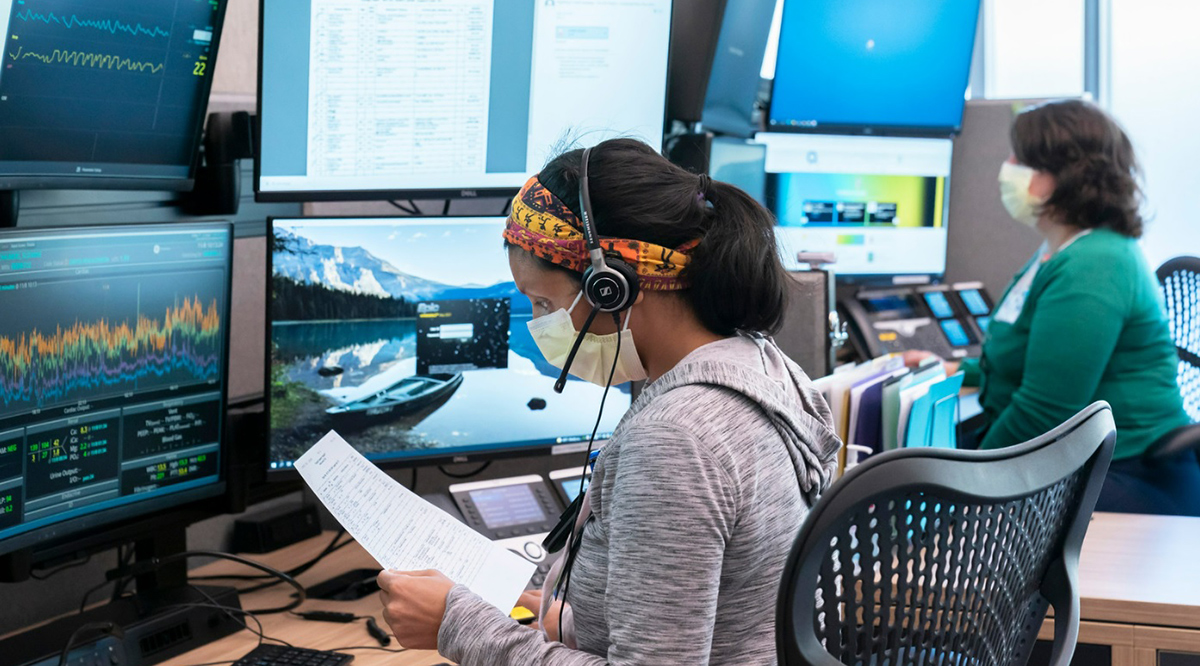
Teaching hospitals are facing thousands of nursing vacancies. Here's how they're getting creative to fill the gaps
From virtual ICUs and paid education to pipeline programs, academic medical centers are stepping up to fill the need for more trained nurses.
The field of space medicine lifts off
In a new golden age of space exploration, opportunities for medical research and clinical expertise in aerospace medicine arise.
The fallout of Dobbs on the field of OB-GYN
The field of obstetrics-gynecology was already experiencing worrisome shortages, tough hours, and high rates of burnout. And then the Dobbs decision hit.
1 in 5 U.S. physicians was born and educated abroad. Who are they and what do they contribute?
They come from countries like India and Ghana to work in places like Kansas and the Bronx. We look at why physicians born and educated abroad come to the United States, the obstacles they face to get here, and what they contribute once they arrive.
Physician wellness
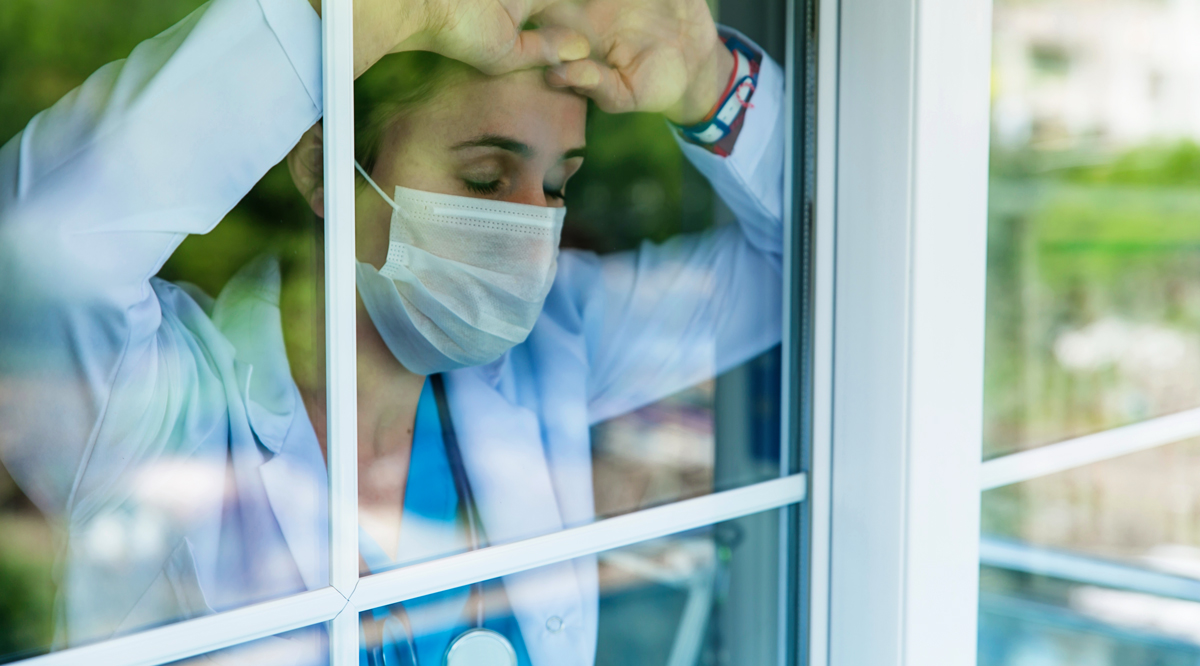
Out of the shadows: Physicians share their mental health struggles
Doctors face high rates of mental health challenges, but they often hide their stories due to shame and fear of professional fallout. Four physicians reveal their journeys in the hopes of reducing stigma and inspiring others to seek care.
5 wellness resources for doctors
Whether you prefer a book, a podcast, or an app, these resources can help physicians and medical students take a small step to support their own wellness.
Medical research

Are some people immune to COVID-19?
Many health care workers and others have never contracted the disease despite being heavily exposed. Scientists around the world are studying whether genetic mutations make some people immune to the infection or resistant to the illness.
CBD: Does it work? Is it safe? Is it legal?
Cannabidiol has been used to treat insomnia, depression, anxiety, and more. But what does the science say about its safety and efficacy? And do consumers have to worry about getting into legal trouble for using marijuana’s cousin?
The science of pain: What is it and why is it so hard to measure?
Chronic pain is one of humanity’s most common ailments, but its biological mechanisms remain a mystery. While researchers seek answers, doctors focus on how pain affects a patient’s life.
Sleep as a determinant of health
A growing body of research shows the importance of sleep for health, but millions of people don’t get enough of it.
Can psychedelic drugs, once banned, help relieve mental illness?
Decades after most hallucinogens were outlawed as dangerous, researchers are using them to treat disorders like PTSD, depression, and addiction. Still a mystery: How they actually work.
Recent breakthroughs in Alzheimer’s research provide hope for patients
While there is no cure, researchers say a newly approved drug, advanced testing, and increasing knowledge about the disease may improve patients’ lives.
5 medical advances that will change patient care
Every day, scientists strive to solve some of medicine’s toughest questions. Here’s a look at recent breakthroughs that tackle painful conditions and deadly diseases.
Medical schools and veterans hospitals: Old friends make new discoveries
Since joining forces to serve wounded WWII soldiers, academic medical centers and veterans hospitals have partnered to produce innovations in health care.
Sepsis is the third leading cause of death in U.S. hospitals. But quick action can save lives.
Each year, 1.7 million people in the United States develop sepsis – a potentially deadly immune response to infection. Here’s how teaching hospitals are working to improve outcomes.
Freedom of speech
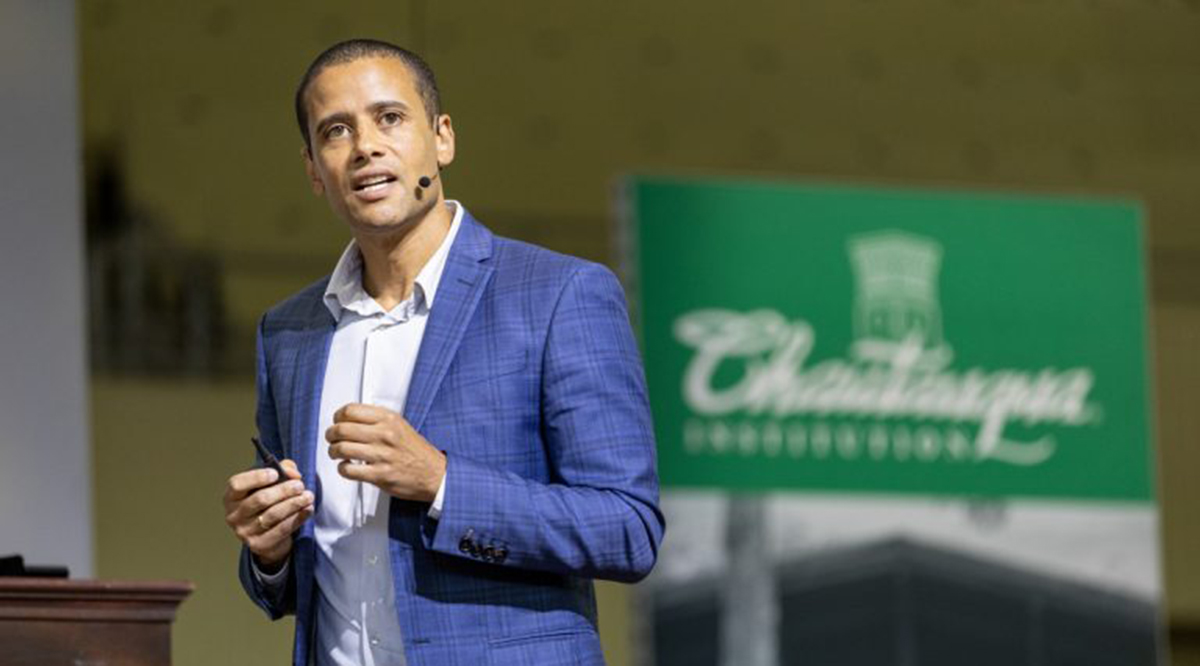
Free speech: Why it’s under attack and what can be done to promote diverse viewpoints
Human rights lawyer Jacob Mchangama discusses threats to freedom of expression across the globe — and why it’s important to protect this bedrock of democracy.
Here’s what happens when freedom to speak meets intolerance to listen
Are some views unfit to be aired at medical school? Tensions over critical social issues spur heated objections but also open room for thoughtful discussion.
Is academic freedom in crisis?
Professors being disciplined for espousing their views in the classroom or online. State legislators pushing bills to restrict what college professors can teach. Academic freedom is increasingly under threat. What happens now?
Is spreading medical misinformation a physician’s free speech right? It’s complicated
In an age of widespread misinformation, the medical profession is navigating the line between doctors' First Amendment rights and unacceptably dangerous advice.
Multimedia series: Why I Stay in Medicine
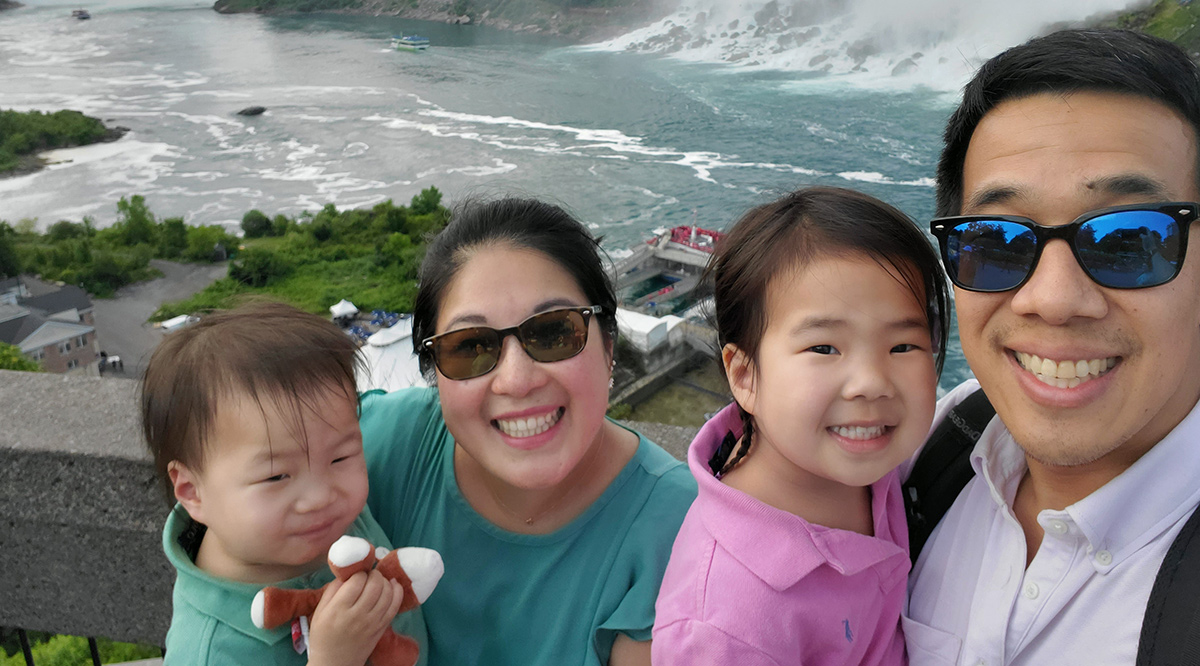
Why I Stay in Medicine: Kam Lam, MD
A former pediatric hospitalist shares her story of saving a child’s life — and why moments like these validate her career choice.
Why I Stay in Medicine: Donald Batisky, MD
As a pediatric nephrologist for more than 30 years, Batisky finds joy in seeing his young patients grow up and thrive.
Why I Stay in Medicine: Tony Phan
Working as a medical technician in the U.S. Air Force, Tony Phan was inspired by the doctors who demonstrated the human side of medicine. Now, he’s on his own journey to become a physician.
Viewpoints
The bodies keep coming
In this excerpt from his recently released book, trauma surgeon Brian H. Williams, MD, reflects on the epidemic of gun violence, the structural racism that feeds it, and what can be done to heal the nation.
Why every operating room needs a black box
Taking a page from the airline industry, hospitals are capturing surgical procedures on video to reduce errors and enhance teamwork. Here’s why one expert thinks black boxes are crucial for improving patient safety.
Hospitals are noisy. They don’t have to be
Excessive noise levels throughout the hospital can harm the physical and mental well-being of staff and patients. Here’s how to reduce the racket.
The deadly legacy of redlining — and a mission to reverse it
For decades, redlining — the widespread denial of home loans in majority Black neighborhoods — undermined the health and well-being of entire communities. Now, a medical school course about the practice aims to open eyes and address deep disparities.
Everyone should be tested for HIV: Here’s why
Making HIV testing a routine part of primary care could reduce inequities and infections, a health equity researcher argues.
TikTok’s Medical Mythbuster on using social media to fight health inequities
Medical student Joel Bervell shares how he got 140 million views on TikTok, as well as the attention of the White House and Oprah Winfrey. And he tells how other health professionals can become social media influencers too.
It’s tempting to say gun violence is about mental illness. The truth is much more complex.
Focusing on mental illness as the cause of mass shootings diverts attention from the larger problem of gun violence in the U.S., two experts argue. It also distracts people from the real issue when it comes to guns and mental health: suicide.
Doctors and hospitals can help prevent gun deaths. Here’s how
Nearly 50,000 people died from gun violence in 2021. Two experts describe how academic medicine can step up research, education, and advocacy that help save lives.
Why eliminating race-conscious admissions will hurt medical school students
The U.S. Supreme Court could erase years of progress in improving the diversity of the medical student population. That has implications not just for the future physician workforce but for the health of patients too.
‘6% is not enough.’
Just 6% of U.S. physicians are Latino, despite 19% of the U.S. population identifying as Latino. A coalition of physicians aims to change that.
The tragedy of Black youth suicide
Black children ages 5 to 12 are twice as likely to die by suicide as their White peers, and Black teen suicides are growing at shocking rates. What’s going on, and what can be done to help save young Black lives?
Coming together to grieve when a patient dies
After a patient’s death, providers may feel a range of intense feelings, from grief to guilt to anger. But hospitals can create opportunities for providers to heal and honor the lives of the patients they served.
AAMC Publications/Reports/Initiatives
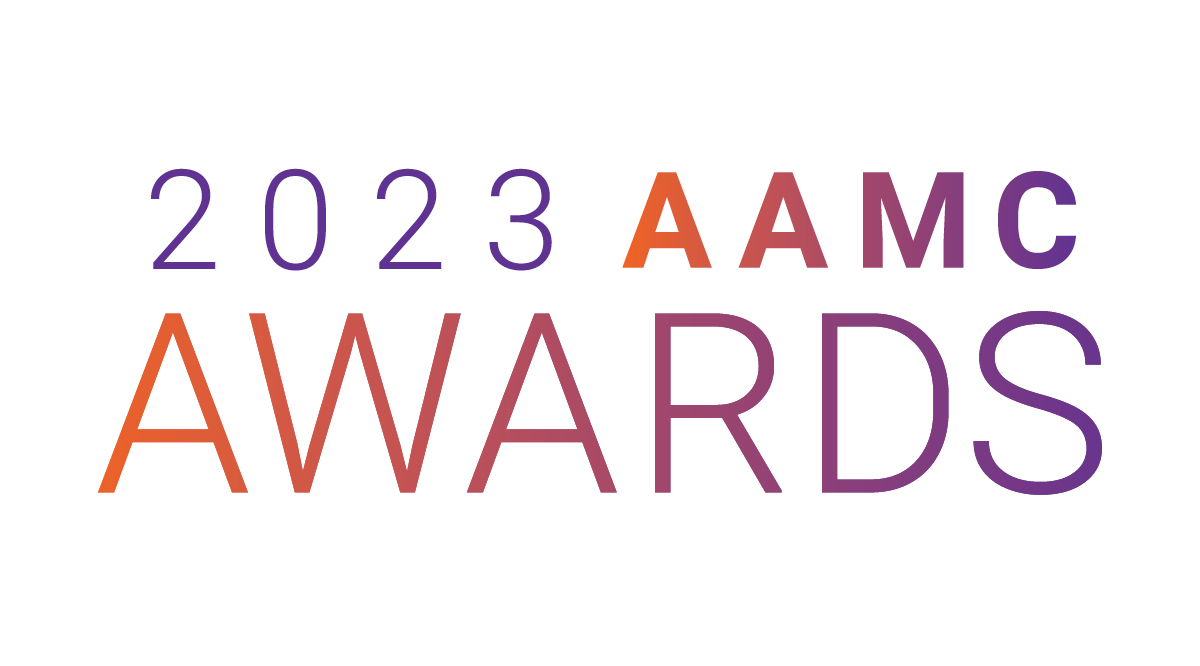
Celebrating the 2023 AAMC Award Winners
Throughout their careers, these esteemed academic medicine faculty have had a significant impact on medical education, patient care, and the biomedical sciences.
At medical schools, fewer apply but class sizes grow
The number of applicants declines but enrollment rises, while some ethnic groups expand their presence, new data show. Overall demographic trends might be at work.
What’s your specialty? New data show the choices of America’s doctors by gender, race, and age
More women are becoming doctors, doctors of different racial backgrounds are drawn to different areas of practice, and sports medicine continues to grow fastest of all specialties, according to a new report from the AAMC.
10 things you didn’t know about medical residents
The AAMC 2022 Report on Residents shows more diverse residents and continued interest in internal medicine and infectious disease specialties, among other findings.
Q&As
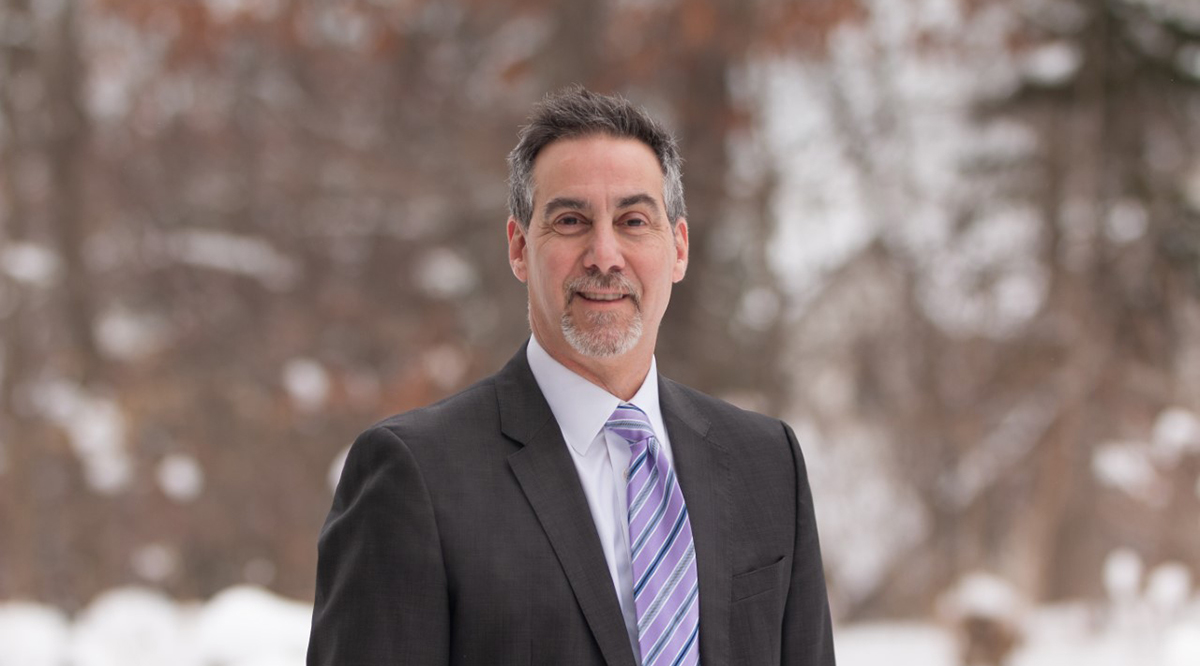 Photo courtesy of Zach Jaffery
Photo courtesy of Zach Jaffery
Introducing the AAMC’s new chief health care officer
Jonathan Jaffery, MD, has spent years working to reduce health disparities and implement innovative care models across the UW Health system. Here’s how his experiences will inform his leadership at the AAMC.
Introducing the AAMC’s new chief communications and marketing officer
Susan Cato has spent years leveraging digital tools to transform the member experience at nonprofit associations. Here are her priorities as she takes the communications leadership helm at the AAMC.
Celebrating a distinguished career in scientific research and medicine
The AAMC’s chief scientific officer, Ross McKinney Jr., MD, reflects on four decades in academic medicine and the challenges ahead for medical research and researchers.
Abortion in America: From Roe to Dobbs and beyond
Why is abortion in America so polarized? How did we get where we are today, and what lies ahead? Leading legal expert and historian Mary Ziegler, JD, weighs in.
Facing Alzheimer’s as a physician and caregiver
Sandeep Jauhar, MD, a cardiologist and author, reflects on what he learned about the brutal reality of Alzheimer’s disease from caring for his father.
Erosion of the doctor-patient visit: “We must speak out.”
Physician and author Abraham Verghese sees business forces reducing human connection in medical care, and urges doctors to “find their passion in each patient encounter.”
Other
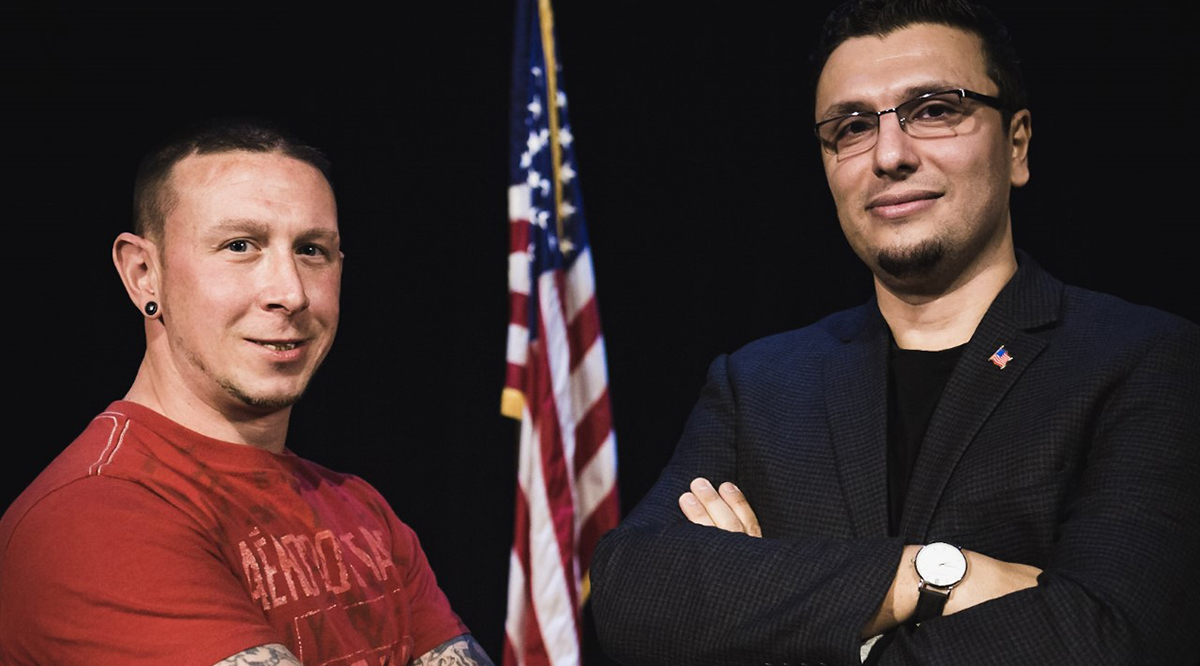
The unlikely friendship between a Muslim doctor and a former Klan member
Heval Kelli, MD, fled persecution in Syria and eventually became a U.S. cardiologist. Chris Buckley fought in Afghanistan and came home loathing Muslims. Now they’re on a mission to help heal our nation.
Top 10 academic medicine stories of 2023
COVID-19 immunity. The need for more Spanish-speaking physicians. Recent breakthroughs in Alzheimer’s disease research. Our annual list of the most-read AAMCNews stories of 2023.
9 great books for doctors — or anyone interested in the world of medicine
Take a journey through the human body, travel through time to the start of nursing, and explore the world of gene sequencing all from the comfort of your couch or hammock with this year’s list of summer reads.
Learn Serve Lead
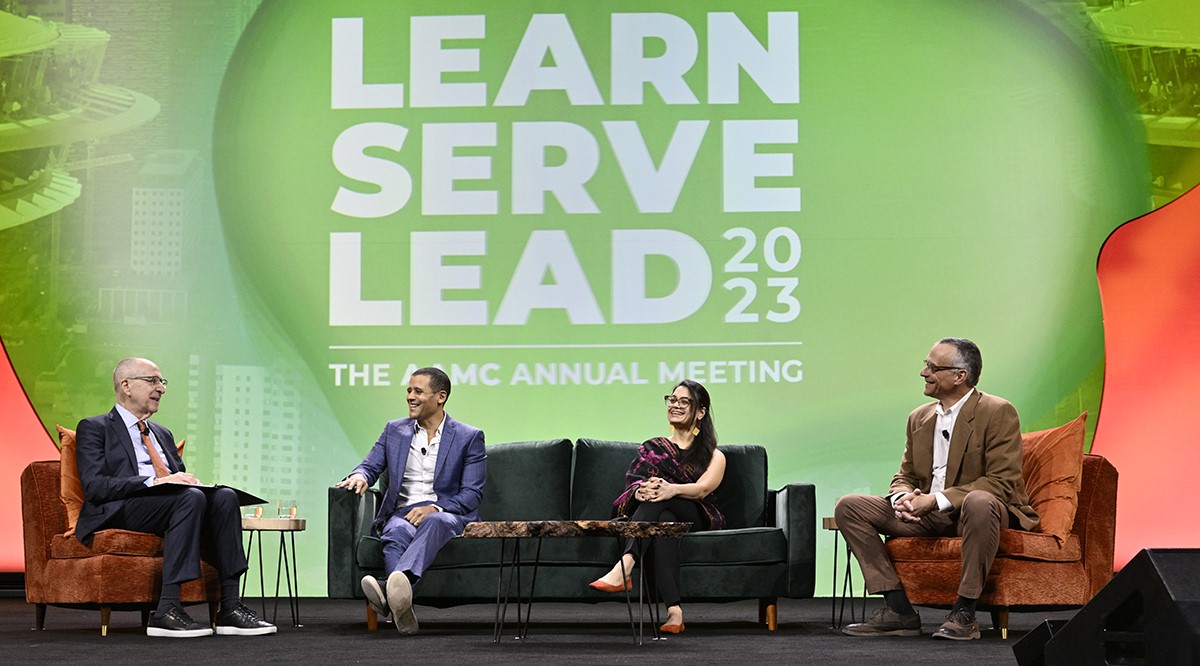
Medical schools must protect free speech by making space for controversial views
Amid rising efforts to ban certain views on campuses, panelists at the opening plenary session at Learn Serve Lead 2023 said students must be exposed to diverse and even offensive opinions in order to grow.
Finding humanity in Alzheimer’s
Sandeep Jauhar, MD, cardiologist and best-selling author, illuminates the brutality and beauty of caring for his father through a degenerative illness.
Physicians can — and must — help prevent gun deaths, trauma surgeons insist
Academic medicine has a duty to join the fight against firearm deaths, say gunshot survivor Joseph Sakran, MD, and leading firearms researcher Chethan Sathya, MD.
AAMC leaders to academic medicine: We must work together to solve the biggest problems in health care
AAMC President and CEO David J. Skorton, MD, and AAMC Board Chair LouAnn Woodward, MD, express confidence in the collective power of academic medicine to address health inequities, climate change, and more.
Healing through storytelling
Author and teacher Laurel Braitman, PhD, shares how writing can help medical professionals cope with grief and loss.
Reducing academic medicine’s carbon footprint
A student, doctor, and dean talk about reducing surgical waste, cutting back on damaging anesthetics, and turning a parking lot into a solar farm.
Navigating health policy during politically fractious times
While broad health reforms are unlikely, Congress could address mental health care, pharmacy benefit managers, and other issues that have bipartisan support.
Abortion in America in the post-Dobbs world
The fallout from the landmark Supreme Court decision overturning the constitutional right to an abortion will continue to challenge patients and providers for years, says legal expert Mary Ziegler, JD.
From troubled lives to medical school
A surgeon and an endocrinologist share how gangs and prison nearly ruined their lives, and how mentors stepped in to help.
Moral injury harms providers and patients
Providers feel deep distress when they’re torn between the desire to serve patients and the demands of bureaucratic health systems, says Wendy Dean, MD.
We can solve poverty in America. We just don’t want to.
Sociologist and Pulitzer Prize-winning author Matthew Desmond, PhD, says we must divest from the policies that exploit the poor to the benefit of the affluent.
Patients urge doctors to treat them as people first
Three patients share experiences in medical care that provide lessons to improve the doctor/patient relationship, in a conversation with renowned author Abraham Verghese, MD.